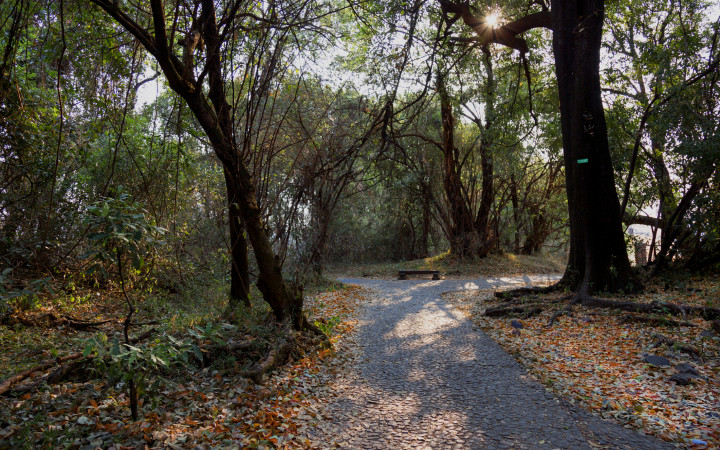Today’s Wonder of the Day was inspired by Ava. Ava Wonders, “Who was Robert Frost?” Thanks for WONDERing with us, Ava!
Do you like making decisions? Or do you usually prefer to let someone else make decisions for you? When you’re out running errands with your family and everyone is getting hungry, what is your response when asked, “Where do you want to eat?”
Indecision can be frustrating for the driver in this situation. In fact, many have wished there was a restaurant named “I Don’t Care,” so that they could simply drive straight there when they receive that as the answer to their question!
Decisions are important, because they have consequences. When you’re at a fork in the road, your choice to go to the left instead of the right can have repercussions that last a lifetime.
So, how do you decide which road to take? Some people choose to take the road less traveled. Why? Perhaps it’s because of their interpretation of a famous poem called “The Road Not Taken”, first published in 1915, by American poet Robert Frost:
Two roads diverged in a yellow wood,
And sorry I could not travel both
And be one traveler, long I stood
And looked down one as far as I could
To where it bent in the undergrowth;
Then took the other, as just as fair,
And having perhaps the better claim,
Because it was grassy and wanted wear;
Though as for that the passing there
Had worn them really about the same,
And both that morning equally lay
In leaves no step had trodden black.
Oh, I kept the first for another day!
Yet knowing how way leads on to way,
I doubted if I should ever come back.
I shall be telling this with a sigh
Somewhere ages and ages hence:
Two roads diverged in a wood, and I —
I took the one less traveled by,
And that has made all the difference.
The common, popular interpretation of the last lines is that, when given the choice, one should not follow in the footsteps of others, but instead take the road less traveled. The implication is that doing so may result in greater risk, but will also yield greater rewards. But is that what Frost meant?
Robert Frost was born in 1874 in San Francisco, California. He spent his first 40 years in relative obscurity. It wasn’t until he lived in England for a while and published his first works there that he was able to return to the United States at the beginning of World War I and achieve success as a poet.
He became well-known for his realistic depictions of everyday life in New England. He eventually won four Pulitzer Prizes for his poetry and was considered by many to be the unofficial “poet laureate” of the U.S.
“The Road Not Taken” is by far Frost’s most famous work. In fact, experts consider it to be the most widely read and remembered American poem of the last century. Its iconic last lines have been repeated so often that some people think the title of the poem is actually “The Road Less Traveled.”
Poetry experts are quick to point out that it’s also likely the most misinterpreted poem of all time. If you read the poem carefully, it’s clear that there’s not much difference between the two roads. Frost describes one road as “just as fair” as the other and notes that travelers “[h]ad worn them really about the same.”
The title also provides a clue that everything may not be as it seems with Frost’s poem. Readers tend to focus on the road less traveled, since Frost says it “has made all the difference.” Yet he titles his poem “The Road Not Taken,” which should put our focus on the road that wasn’t taken.
Some scholars believe the poem can only be correctly interpreted in light of Frost’s inspiration: his walks through the English countryside with British poet Edward Thomas. Frost supposedly wrote the poem for Thomas as a gentle joke about Thomas’ tendency to regret whatever path they took on their walks.
Frost apparently didn’t believe in lamenting over what might have been. Perhaps his message to the reader is simply to focus on the path you choose and make the most of it. If you do that, it will make all the difference. If so, that’s good advice for any decision you might need to make!
Standards: CCRA.L.3, CCRA.L.6, CCRA.R.1, CCRA.R.2, CCRA.R.4, CCRA.R.10, CCRA.SL.1, CCRA.SL.2, CCRA.W.4




